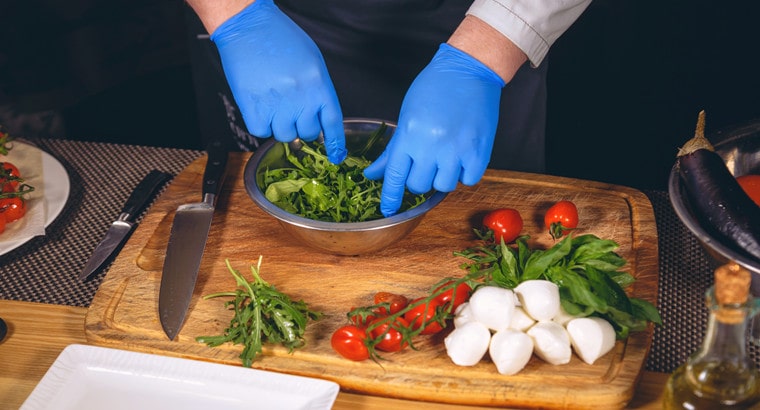Having a license shows that you take food safety seriously. That’s why many hotels and other businesses are looking for people with relevant credentials.
In most states, you can earn a food handler certification by completing courses and passing an exam. The process is quick, easy, and usually inexpensive.
Why Enterprises Need Food Safety Certification
Many food businesses require their employees to be certified to ensure the food they handle is safe. This includes kitchen staff, cooks, dishwashers and janitors who clean kitchen surfaces.
By taking a food handling class, employees can learn proper techniques for safely preparing and serving food. This helps reduce health violations and keeps customers safe.
Obtaining certification can also give your business a competitive edge over others in your industry and help you secure funding from banks. Also, getting a certificate is a great way to improve the quality of your restaurant so customers have a higher quality experience.
What is a Food Operator License?
A food handler license is an impressive certificate of achievement. This means you have met the highest standards of food safety training and testing.
Earning this certification is one of the most important things you can do to protect your customers, employees, and business.
In some states, food handlers must complete courses and pass an exam to become licensed. Most courses are self-paced and can be completed anywhere with an internet connection. The best courses are available in multiple languages and include free practice tests and certificates that can be printed or mailed to your door. You can also find a free app for your smartphone that will send you an email when your certificate has been renewed.
Who needs certification?
A food handler license is proof that an employee has received basic food safety training and understands kitchen hygiene practices. Obtaining certification is an important step in protecting the health of your customers and your business’ reputation.
Generally, this is required of anyone who handles unpackaged food, food contact surfaces, and equipment and utensils. This includes people who work in restaurants, food trucks or caterers.
It is usually easy to obtain a food handler license online after completing a short course and passing an exam. Many local health departments also offer classes. For more details on requirements, please consult your state Department of Health.
danger of non-compliance
Non-compliance is one of the biggest risks in the food industry. It can result in financial loss, security breaches and license termination.
Failure to comply can also result in substantial fines, prosecution or imprisonment. That’s why it’s important to make sure your employees understand the importance of proper food safety practices.
Food Safety Training Category
The Food Safety Training category is designed to provide a comprehensive understanding of the hygienic and safe handling of food. These courses address different levels of responsibility and are applicable across industries, including manufacturing, catering and retail.
Level 1
Ideal for employees who only handle low-risk or packaged food or have minimal food handling responsibilities, such as kitchen porters, front desk staff, and servers.
level 2
Designed for those who work in a catering or manufacturing environment and have a higher level of responsibility to the public. It will provide you with the knowledge and skills to deliver safe food to customers and help improve your business by understanding what is needed to keep workplaces clean, reduce contamination and eliminate risk.
Level 3
For those who work in food-related industries for SMEs and are responsible for ensuring food safety and hygiene standards are maintained. This course teaches how to identify food hazards, how those hazards can affect the health of those who come into contact with them, and the relationship between hazards and risk so you can prioritize actions accordingly.
